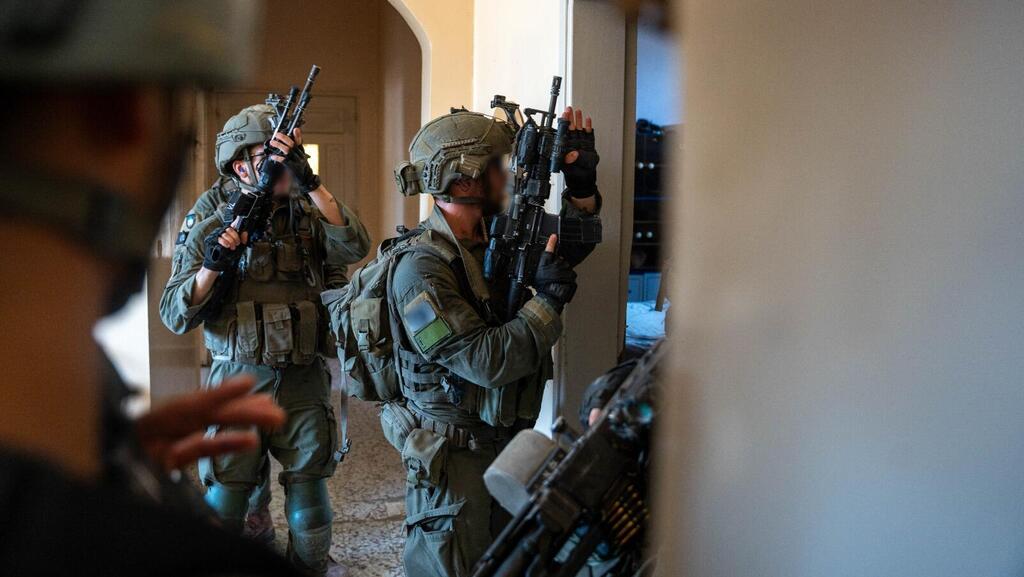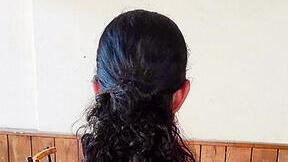Getting your Trinity Audio player ready...
Since the war began, Hila's (alias) husband has been serving almost continuously in the reserves. "By 8:30 am on October 7, he was already at the northern border," she recalled. "I am immensely proud of him; these are our family's values. But alongside the pride, there's also hardship."
Nearly 300 days into the war, the burden on reservist families continues to grow, while the support they receive remains scant. "In the first few months of the war, I lost seven kilos," Hila shared. "I couldn't eat. For five months, I didn't sleep in our bedroom. Going there intensified the loneliness, the absence, the fear, and the thoughts."
"At work, no one saw me," Hila added. "I continued working full-time despite the struggle. When I asked my doctor for sick leave due to exhaustion, she referred me to the clinic's social worker, but the next available appointment was a month away. So I dealt with it alone. Even when I eventually got the sick leave, I didn’t fully use it because it wasn’t well-received at my workplace. I had a psychiatric medication at home, and for the first and only time in my life, I said I couldn’t take it anymore and used it."
Hila's children are also struggling. "My fourth grader received more messages from his teachers during the war than in all his previous school years combined. It got so bad that I decided to stop sending him to school, and only then did the school consider how to help him. Despite these challenges, we are not getting the support we need."
"In public psychology services, the waiting lists are endless, and private treatment costs at least 300 shekels per session. I have four children; where am I supposed to find such money?" This is not an isolated case. It seems there has been no significant improvement in the condition of reservists' families since the last survey published by Ynet and Yedioth Ahronoth in December last year. Eight months later, new data from a survey by the "Reservists' Wives Forum," collected by researcher Mor Kish, indicate increasing burnout among reservist families.
Seventy-nine percent of respondents reported significant weight gain or loss during or following their spouse's reserve service. Thirty percent reported using substances (prescription or non-prescription) that they hadn't used before or in higher doses due to their emotional state linked directly to their spouse's service. Nineteen percent reported having thoughts of self-harm in the past three months. Despite this, 33% did not seek professional help due to financial reasons, and 23% did not seek help because they did not know where to turn.
Children are also showing emotional changes: 53% of infants and toddlers aged 0-5 are experiencing sleep difficulties, 44% are crying more frequently, and 48% are facing significant separation anxiety. Among children aged 6-11, 39% are struggling to concentrate in school, and 29% are exhibiting aggressive behavior. Among teenagers aged 12-18, 34% report a decline in academic performance, and 40% report increased conflicts and arguments at home.
"It's sad that even ten months into the conflict, not everyone understands that there's no such thing as a lone reservist; there's an entire family that is mobilized," says Hagar Chen-Zion, a leader of the Reservists' Wives Forum.
"For almost 300 days, fathers and partners have been on the front lines while the entire family unit is under emergency orders at home. The women have to function as both parents, trying to manage the impossible juggling act of children, household, and work. Indeed, our data shows that 30% have already collapsed under the strain, being fired, placed on unpaid leave, or reducing their work hours—an unprecedented economic and occupational blow, alongside the great sacrifice on the battlefield."
Chen-Zion adds that dealing alone with children facing severe emotional regressions, along with the constant worry for a partner in daily life-threatening situations, exacerbates the stress. "We'll do everything to ensure our families, especially our children, come out of this period feeling like heroes and not victims, but we need immediate support mechanisms for that. We demand the government ministries, especially the health, welfare, and defense ministries, recognize us as a target population requiring special attention so we can receive quick community-based support. We need to establish a standard of care for reservist families—not just vouchers and half-measures, but a comprehensive, clear program."
Yaela Meir, a mother of five, has seen her husband serve 140 days in the reserves so far. "I don't think people understand that our children, parenting, and relationships are not what they were a year ago," she said.
"This has become clearer as the war dragged on—our lives haven't returned to normal. For example, parental authority has been affected, or the uncertainty that accompanied this period—will Dad be home this weekend? Will he not? And the fears—my kids aren’t exposed to the news, but my daughters still have dreams about terrorists and kidnappings."
"The longing was hard, and the kids struggled with the physical absence of their father," Yaela described the tough reality. "My son found one of my daughters sleeping with a paintbrush under her pillow. When he asked why, she said that when she hugs the brush, she imagines its bristles are Daddy’s beard. When my husband announced he was being discharged, she asked if he was coming back for good. What can I explain to her? That half the country doesn’t do reserve duty, so next time there’s a call-up, they’ll call Dad again because they don’t call other dads?"





